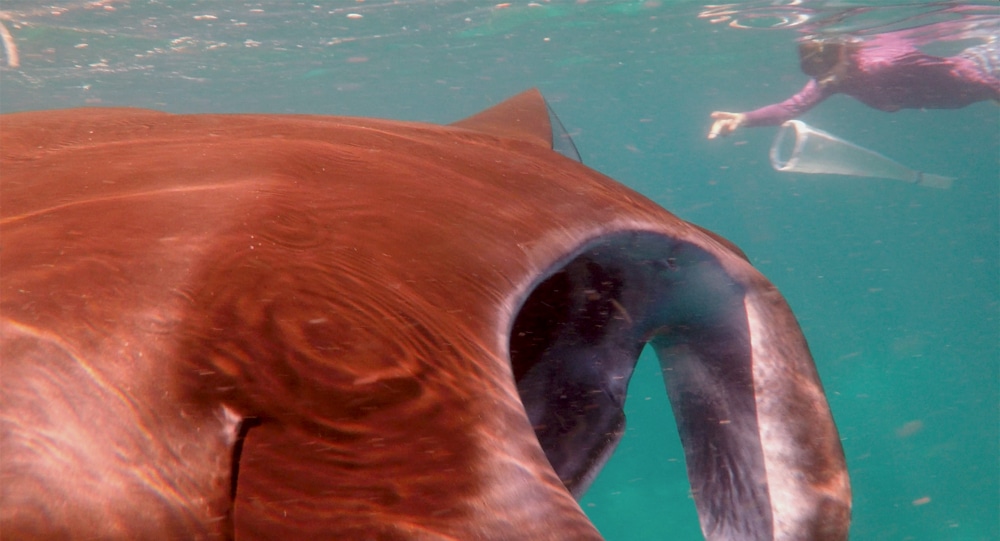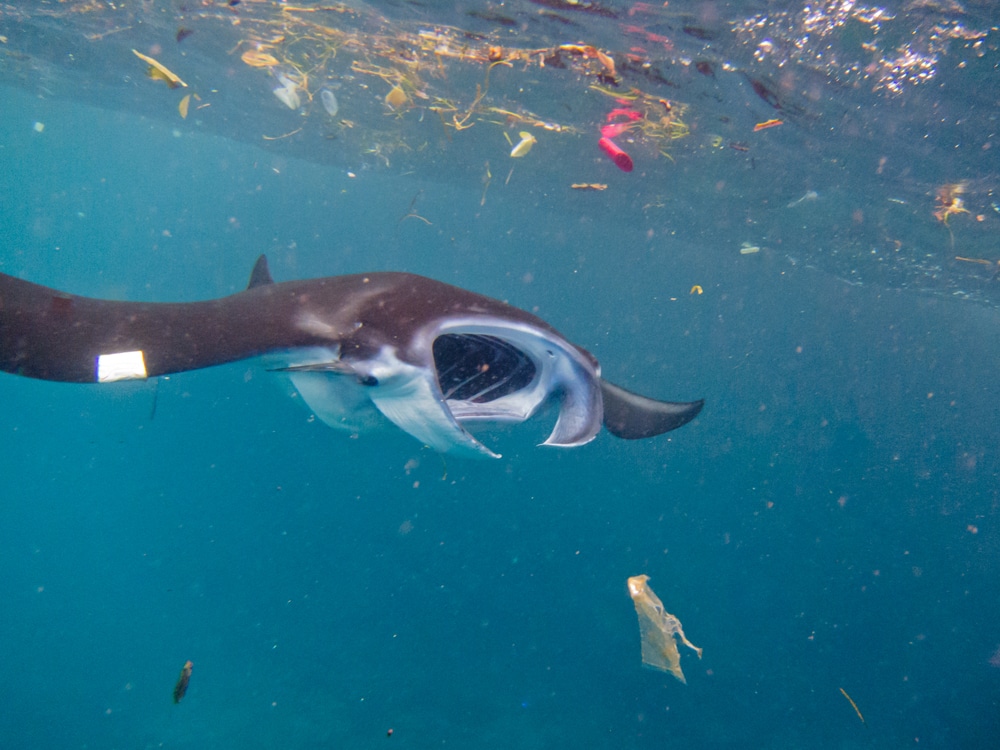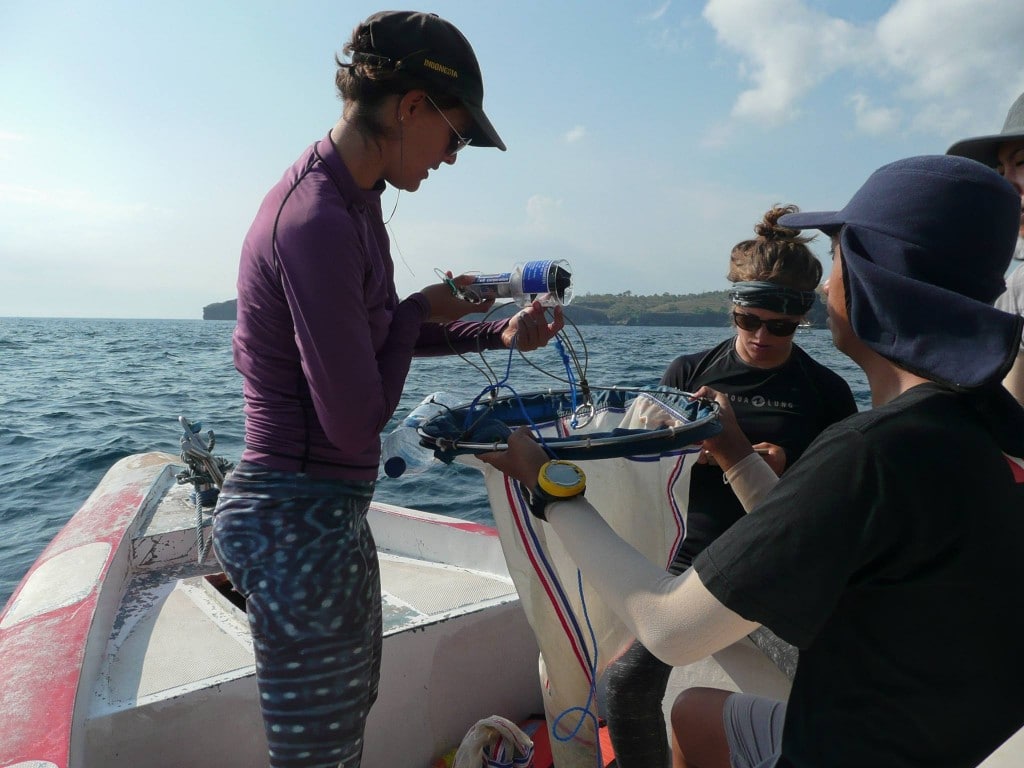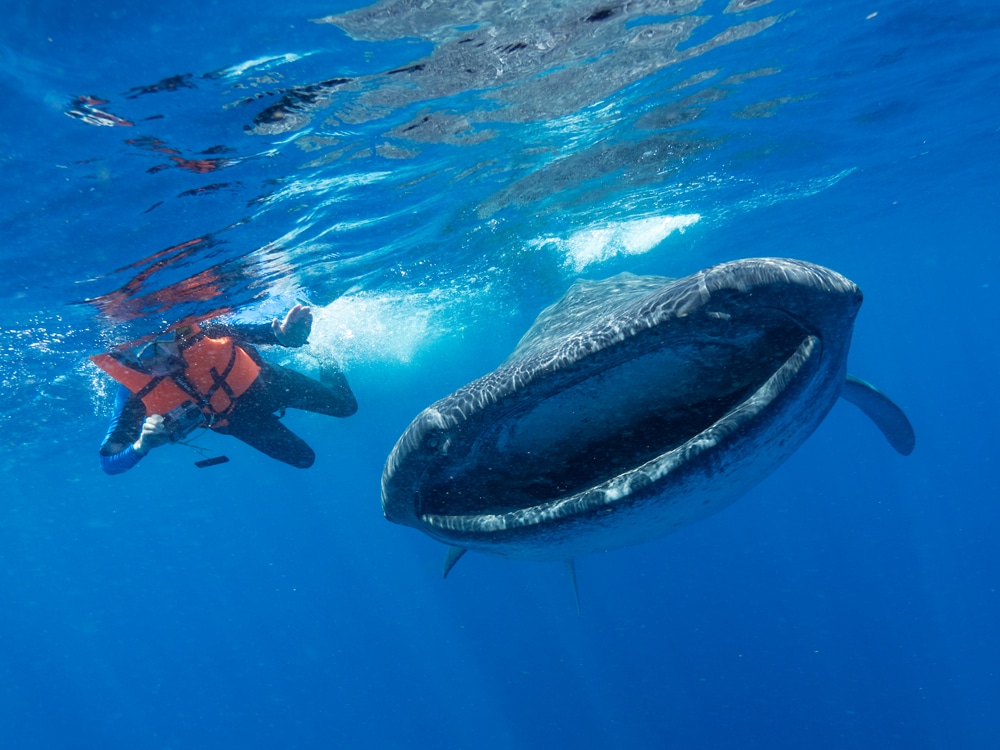News
Microplastics: No small problem for filter-feeding ocean giants

Sharks, rays and whales impacted by microplastic pollution and associated toxins
Plastic pollution has recently gained increasing attention for its effects on marine mammals, fish and birds. However, it is still not fully understood to what extent small pieces of plastic, known as microplastics, impact marine life and ecosystems. Microplastic pollution is a major threat to filter-feeding animals such as manta rays, whale sharks and baleen whales, according to a new study published in the journal Trends in Ecology & Evolution. These iconic animals are at risk of exposure to microplastic contamination and associated toxins.
The paper, authored by researchers from the Marine Megafauna Foundation, Murdoch University (Australia), University of Siena (Italy) and Hawaii Institute of Marine Biology, stresses the significant risks microplastics pose to megafauna since these need to swallow hundreds to thousands of cubic meters of water daily in effort to capture plankton. They can ingest microplastics directly from polluted water or indirectly through contaminated prey. Filtering of indigestible plastic particles can block nutrient absorption and cause damage to the digestive tract of animals. Additionally, plastic-associated chemicals and pollutants can accumulate over decades and alter biological processes, leading to altered growth, development and reproduction, including reduced fertility.
Lead author Elitza Germanov, researcher at the Marine Megafauna Foundation and PhD student at Murdoch University, said: “Despite the growing research on microplastics in the marine environment, there are only few studies that examine the effects on large filter feeders. We are still trying to understand the magnitude of the issue. It has become clear though that microplastic contamination has the potential to further reduce the population numbers of these species, many of which are long-lived and have few offspring throughout their lives.”
“It is vital to understand the effects of microplastic pollution on ocean giants since nearly half of the mobulid rays, two thirds of filter-feeding sharks and over one quarter of baleen whales are listed by the IUCN as globally threatened species and are prioritized for conservation”, she adds.
It is challenging to assess plastic concentrations through conventional methods usually used to study animal diets, such as stomach analysis or collection of egested material, as these rely on opportunistic observations and are unsuitable for threatened species. However, using non-lethal sampling of small amounts of tissue (biopsy), researchers are now able to test for chemical tracers.
Professor Maria Cristina Fossi from the University of Siena, one of the first scientists who studied this problem, and colleagues reported an average of 0.7 plastic items per cubic meter of water around the Baja California peninsula, an important feeding ground for endangered whale sharks. The researchers estimated that whale sharks may be ingesting 171 items on a daily basis. Meanwhile in the Mediterranean Sea, fin whales are thought to swallow microplastic particles in the thousands per day.
“Our studies on whale sharks in the Sea of Cortez and on fin whales in the Mediterranean Sea confirmed exposure to toxic chemicals, indicating that these filter feeders are taking up microplastics in their feeding grounds. Exposure to these plastic-associated toxins pose a major threat to the health of these animals since it can alter the hormones, which regulate the body’s growth and development, metabolism, and reproductive functions, among other things”, says Professor Fossi who co-authored this paper.
Filter feeders are considered to be at high risk of exposure since many inhabit some of the most polluted waters, namely in the Coral Triangle region, Bay of Bengal, Gulf of Mexico and Mediterranean Sea. “As plastic production is projected to increase globally, future research should focus on coastal regions where microplastic pollution overlaps with the critical feeding and breeding grounds of these threatened animals. Many areas are biodiversity hotspots and of economic importance due to fisheries and marine tourism. Targeting these with the backing of local government and industry will help ensure efforts to mitigate the plastic threat are employed to their fullest,” Germanov concludes.
Elitza Germanov, Andrea Marshall, Lars Bejder, Maria Cristina Fossi and Neil R Loneragan ‘Microplastics: No small problem for filter feeding megafauna’ was published on 5 February 2018 and is available here.
The Marine Megafauna Foundation was created in 2009 to research, protect and conserve the populations of threatened marine megafauna around the world. ‘Megafauna’ are large marine species such as sharks, rays, marine mammals and sea turtles.
Find out more about Marine Megafauna Foundation here.
Blogs
Discover Curaçao with the Ultimate Dive Vacation Guide – 2024 DEMA Special Edition

Dive Travel Curaçao is thrilled to announce the launch of the Curaçao Dive Vacation Guide – 2024 DEMA Special Edition, an expertly curated resource that unveils the unparalleled dive experiences and vacation possibilities awaiting you in Curaçao. Produced exclusively for the Diving Equipment & Marketing Association (DEMA) Show 2024, this special edition guide is packed with exclusive insights, travel tips, and limited-time DEMA offers that make it easier than ever to explore Curaçao’s stunning underwater landscapes and vibrant culture.
Explore Curaçao’s Unmatched Diving Opportunities
With over 70 diverse dive sites along its southern coastline, Curaçao is a bucket-list destination for divers of all experience levels. From thriving coral reefs and intricate marine ecosystems to historic shipwrecks, the island offers a variety of underwater experiences that are hard to match. The Curaçao Dive Vacation Guide – 2024 DEMA Special Edition provides detailed recommendations for both shore and boat diving, making it a valuable tool for divers seeking the best entry points, pristine reefs, and hidden treasures along the coastline. Whether you are an avid wreck diver, or a beginner interested in shallow reefs, Curaçao has it all.

Uncover Eco-Friendly Dive Resorts and Top Dive Operators
This DEMA 2024-exclusive Curaçao guide goes beyond diving to feature insider information on Curaçao’s eco-friendly accommodations, dive resorts, and top-rated dive operators committed to sustainable dive tourism. From all-inclusive resorts that support coral reef restoration initiatives to charming boutique hotels near prime dive locations, the guide helps travelers find the ideal stay to match their vacation goals. It also spotlights trusted dive operators on the island who prioritize environmental preservation, offering travelers a way to enjoy the underwater world responsibly.

Immerse Yourself in Curaçao’s Culture, Culinary Delights, and Adventure
Curaçao offers a vibrant Caribbean culture rich in history, music, and culinary fusion. The guide reveals Curaçao’s hidden gems, including culinary hotspots, historical sites, and eco-tourism opportunities that will appeal to both divers and non-divers. Visitors can explore the island’s iconic architecture, savor a diverse range of dishes influenced by Caribbean, European, and South American flavors, and embark on land-based eco-adventures, such as hiking, cave exploration, and visiting national parks.

Exclusive DEMA 2024 Specials and Limited-Time Dive Packages
This special edition guide features limited-time DEMA 2024 offers on dive packages, accommodations, and excursions. Travelers who book through Dive Travel Curaçao, or our Curaçao dive travel partners attending DEMA, will have access to exclusive discounts on custom dive vacation packages, making it easier to plan an affordable, high-quality dive trip that fits your preferences. The Curaçao Dive Vacation Guide – 2024 DEMA Special Edition is designed to simplify your travel planning and help you dive deeper into the incredible experiences that Curaçao has to offer.
It’s Time to Dive Curaçao!
Now is the time to discover why Curaçao is a top dive destination in the Caribbean! Dive Travel Curaçao invites you to experience an unforgettable dive vacation with exclusive DEMA 2024 specials tailored just for you. To secure your spot, download a copy of the Curaçao Dive Vacation Guide – 2024 DEMA Special Edition and contact the Dive Travel Curaçao team to start customizing your Caribbean dive adventure today.
For more information and bookings, please visit Dive Curaçao’s website or contact our reservations team directly.

News
Santa Divers take the Plunge for Charity

Ho Ho Ho! Vobster Quay’s recording-breaking charity Santa diving event returns on Sunday 15th December 2024 for another round of festive fundraising frivolities. Run in aid of the Royal National Lifeboat Institution (RNLI) and Help For Heroes, this ever-popular annual fundraising event aims to raise sack-loads of cash for these two very deserving charities.
Divers of all levels are invited to grab their Santa outfits – and as much festive cheer as they can muster – and head down to Vobster Quay near Mells, Somerset for a mass sponsored Santa dive in aid of charity. In previous years, the event has attracted divers from the far corners of the UK to join in the festive merriment for a final festive dive before the Christmas and New Year break. Back in 2015, the event smashed the world record for the most Santa divers with 188 divers taking to the waters donning their festive finery – a record that remains unbeaten to this day!

Vobster Santas isn’t just about setting records – it’s also about raising some serious cash for charity. Vobster Quay encourages all divers to get into the spirit of the season to raise much-needed funds for two very deserving charities – the Royal National Lifeboat Institution (RNLI) and Help For Heroes.
Through individual sponsorship and online donations, divers can invite their friends, family and work colleagues to sponsor them to plunge into the balmy waters of Vobster Quay dressed in full festive finery. Since the very first Santa dive in 2007, the event has raised over £52,000 for charity. “It’s been over 17 years since the very first charity Santa dive took place at Vobster Quay and every year the event just keeps getting bigger and better” enthused Vobster Quay owner, Amy Stanton.
“Vobster Santas is a great way for divers to say a massive thank you to the both the RNLI and Help For Heroes – two very deserving charities close to our hearts. We’re immensely proud of all that Vobster Santas has achieved and hope that even more divers will join this year’s event on Sunday 15th December. I’m confident that we can make Vobster Santas 2024 the biggest yet!”.
Divers wishing to participate can get involved by simply registering their attendance at
www.vobster.com/event-vobstersantas.php.

-

 News1 month ago
News1 month agoIconic SS United States to become the World’s Largest Artificial Reef
-

 Blogs3 months ago
Blogs3 months agoNovoScuba’s Game-Changing Approach for Dive Store Owners: WE PAY YOU!
-

 News2 months ago
News2 months agoBook Review – 52 Assignments: Underwater Photography
-

 Gear News2 months ago
Gear News2 months agoDYNAMICNORD – New German diving brand enters the British market
-

 News2 months ago
News2 months agoExploring Cenote El Pit: A Diver’s Dream
-

 Gear News2 months ago
Gear News2 months agoTry BARE drysuits (and maybe even win one!) this Friday with Sea & Sea at North West Dive Fest
-

 News3 months ago
News3 months agoComing Soon – 52 Assignments
-

 News3 months ago
News3 months agoSave £200 per person per week at Pole Pole Lodge with Dive Worldwide


















